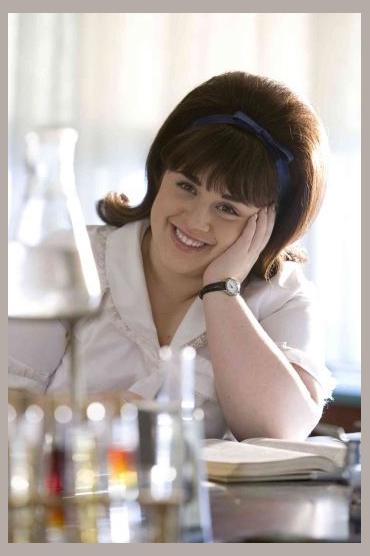 Hairspray
Hairspray
Hairspray: The Beat that Could Not Be Stopped
In the vibrant tapestry of American pop music, Hairspray stands as an enduring anthem of liberation and self-expression. This electrifying band burst onto the scene in the early 1960s, their music serving as a soundtrack to a transformative era.
The Members: A Tapestry of Talent
At its core, Hairspray was an ensemble of gifted musicians. Lead singer Tracy Turnblad, with her infectious energy and powerhouse vocals, captivated audiences from the start. Her infectious smile and unwavering passion for music made her the heart and soul of the band.
Joining Tracy was the enigmatic Penny Pingleton, whose haunting melodies and ethereal harmonies added a touch of otherworldly grace to their sound. To complete the trio, Marlyn Pillsbury provided the rhythmic backbone with her steady drumming and infectious grooves.
The Early Days: Challenges and Controversies
Hairspray's journey was not without its obstacles. In a time of racial segregation and conservative values, their message of inclusivity and self-acceptance sparked controversy. Their lyrics, often laced with biting social commentary, challenged societal norms and drew scorn from detractors.
Despite these challenges, Hairspray persevered, their music resonating with a growing audience that embraced their message of unity and love.
Discographic Triumphs
Hairspray's debut album, "Can't Stop the Beat," was an instant success, selling millions of copies worldwide. Its title track became an anthem for generations, embodying the band's relentless optimism and belief in the power of unity.
Subsequent albums solidified their status as pop icons. "Good Morning Baltimore" chronicled the struggles and triumphs of life in a racially divided city, while "Run and Tell That" became a dance floor staple, its infectious rhythm capturing the spirit of a changing world.
Legacy of Inclusion and Inspiration
Hairspray's music transcended boundaries, becoming a symbol of hope and empowerment for marginalized communities. Their songs celebrated diversity and challenged societal prejudices, leaving an enduring mark on popular culture.
The band's influence extended beyond music. The Broadway musical adaptation of Hairspray, first performed in 2002, has garnered numerous awards and continues to inspire audiences worldwide.
Conclusion
Hairspray's legacy as a beacon of inclusivity and artistic freedom remains unyielding. Their music continues to uplift and inspire, reminding us of the transformative power of unity and the boundless potential of the human spirit. Like the beat that gave them their name, Hairspray's music will forever echo through the annals of popular culture, an eternal testament to the power of art to drive social change.
In the vibrant tapestry of American pop music, Hairspray stands as an enduring anthem of liberation and self-expression. This electrifying band burst onto the scene in the early 1960s, their music serving as a soundtrack to a transformative era.
The Members: A Tapestry of Talent
At its core, Hairspray was an ensemble of gifted musicians. Lead singer Tracy Turnblad, with her infectious energy and powerhouse vocals, captivated audiences from the start. Her infectious smile and unwavering passion for music made her the heart and soul of the band.
Joining Tracy was the enigmatic Penny Pingleton, whose haunting melodies and ethereal harmonies added a touch of otherworldly grace to their sound. To complete the trio, Marlyn Pillsbury provided the rhythmic backbone with her steady drumming and infectious grooves.
The Early Days: Challenges and Controversies
Hairspray's journey was not without its obstacles. In a time of racial segregation and conservative values, their message of inclusivity and self-acceptance sparked controversy. Their lyrics, often laced with biting social commentary, challenged societal norms and drew scorn from detractors.
Despite these challenges, Hairspray persevered, their music resonating with a growing audience that embraced their message of unity and love.
Discographic Triumphs
Hairspray's debut album, "Can't Stop the Beat," was an instant success, selling millions of copies worldwide. Its title track became an anthem for generations, embodying the band's relentless optimism and belief in the power of unity.
Subsequent albums solidified their status as pop icons. "Good Morning Baltimore" chronicled the struggles and triumphs of life in a racially divided city, while "Run and Tell That" became a dance floor staple, its infectious rhythm capturing the spirit of a changing world.
Legacy of Inclusion and Inspiration
Hairspray's music transcended boundaries, becoming a symbol of hope and empowerment for marginalized communities. Their songs celebrated diversity and challenged societal prejudices, leaving an enduring mark on popular culture.
The band's influence extended beyond music. The Broadway musical adaptation of Hairspray, first performed in 2002, has garnered numerous awards and continues to inspire audiences worldwide.
Conclusion
Hairspray's legacy as a beacon of inclusivity and artistic freedom remains unyielding. Their music continues to uplift and inspire, reminding us of the transformative power of unity and the boundless potential of the human spirit. Like the beat that gave them their name, Hairspray's music will forever echo through the annals of popular culture, an eternal testament to the power of art to drive social change.